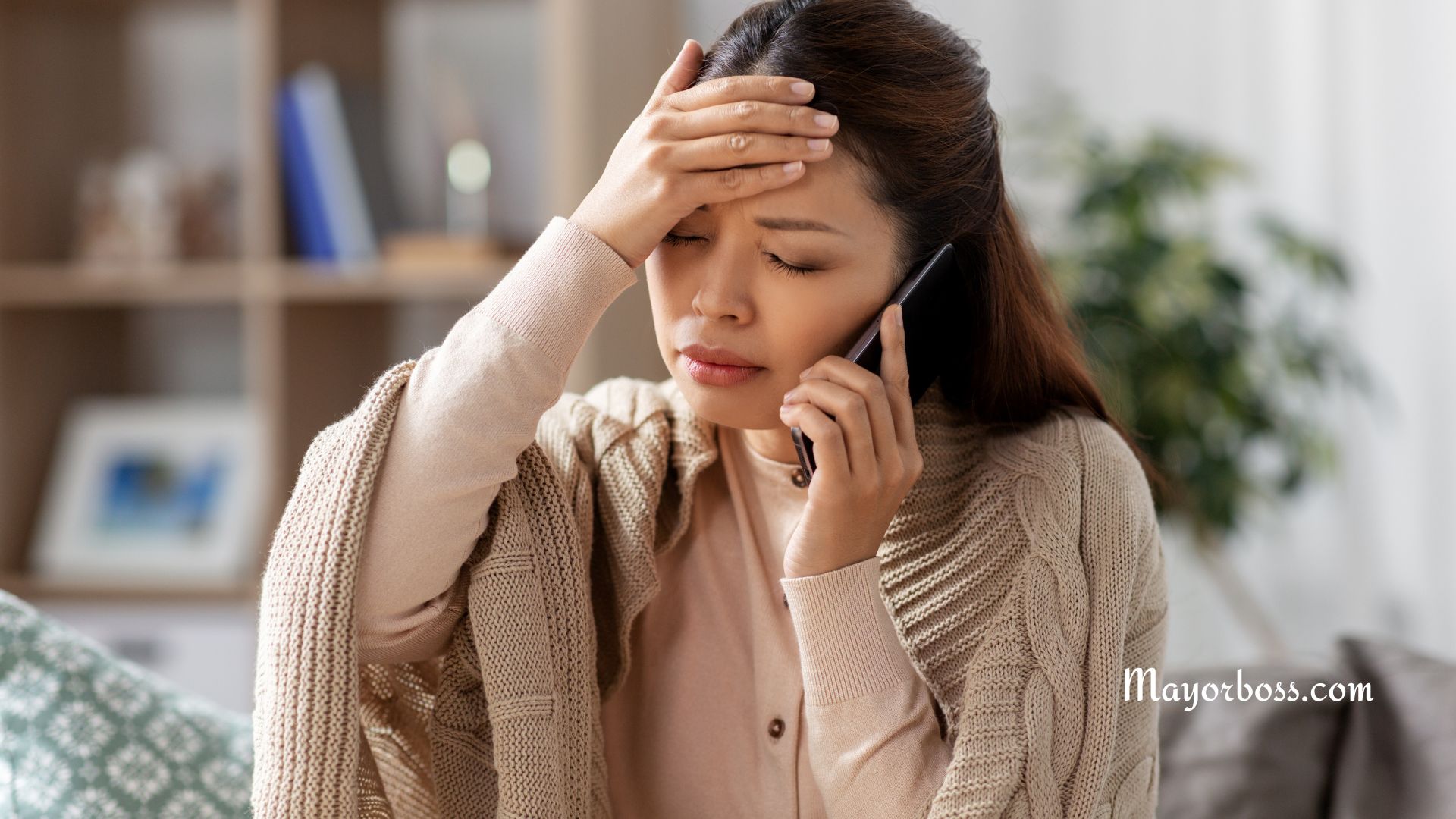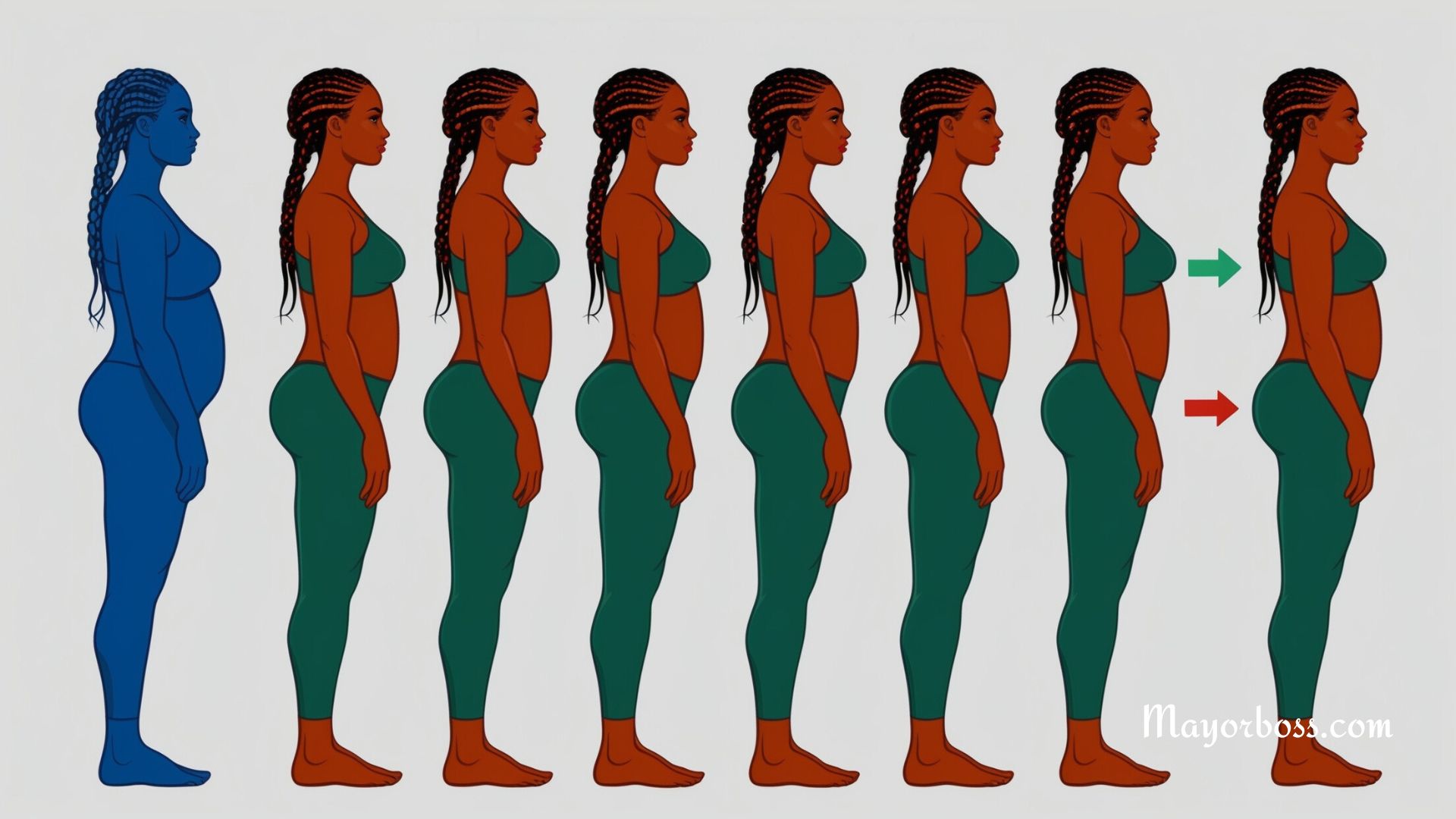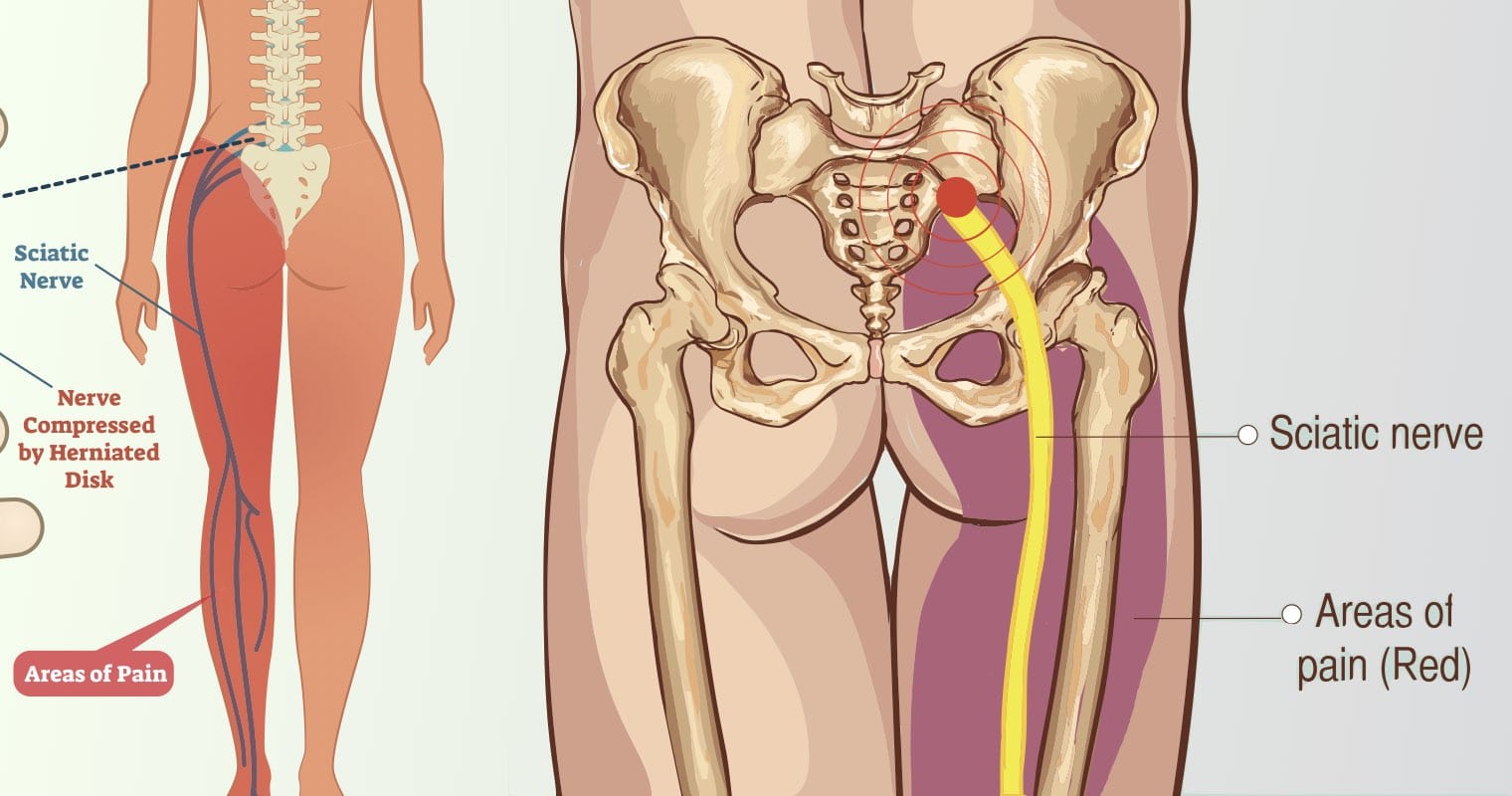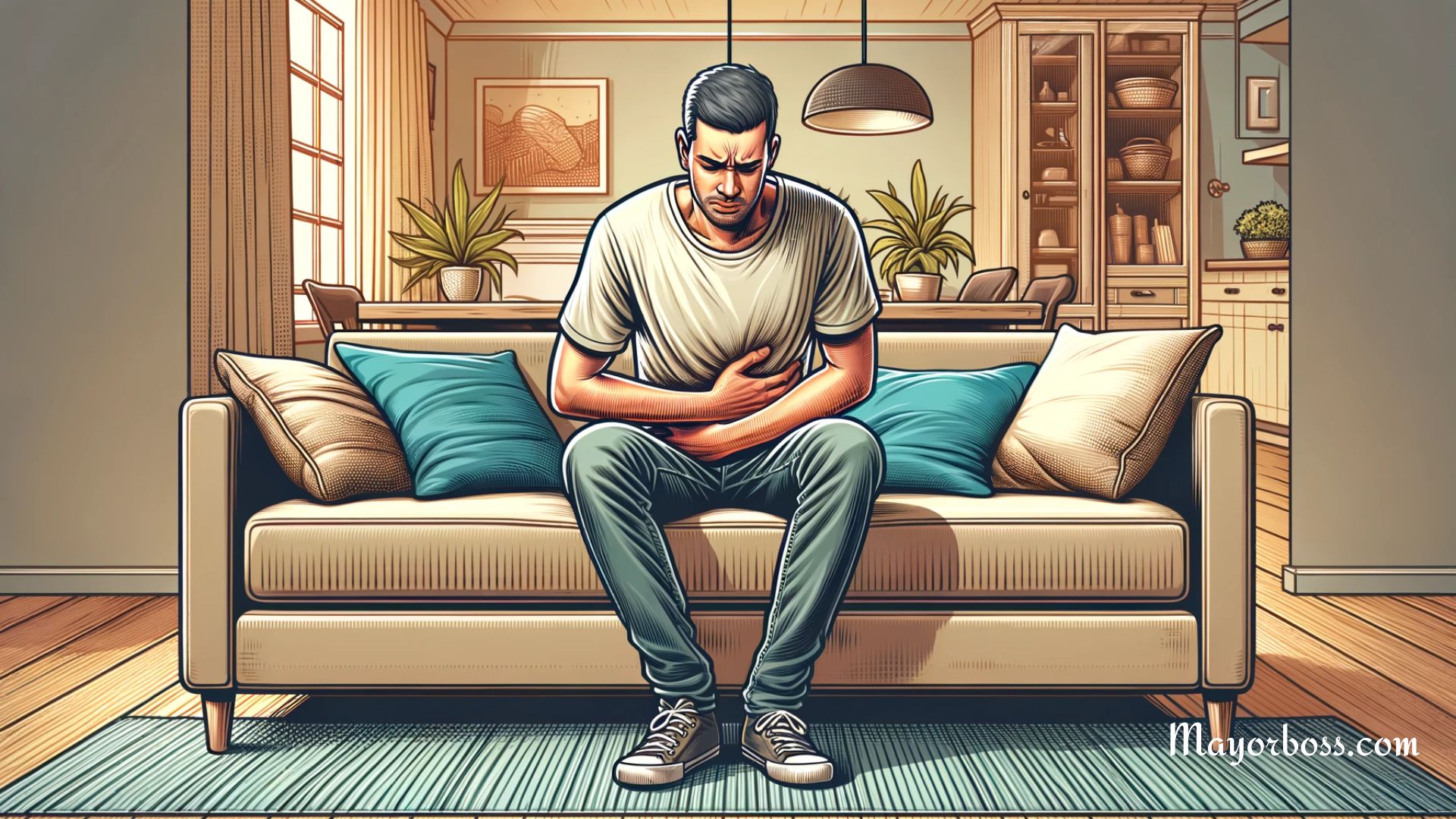Overhydration: How Much Water Is Too Much?
Overhydration, or water intoxication, happens when you drink more water than your kidneys can handle, leading to dangerously low sodium levels (hyponatremia). This can cause headache, nausea, confusion, seizures, and in severe cases, coma or death. Most healthy adults should not exceed 3–4 liters of water a day unless directed by a healthcare provider.
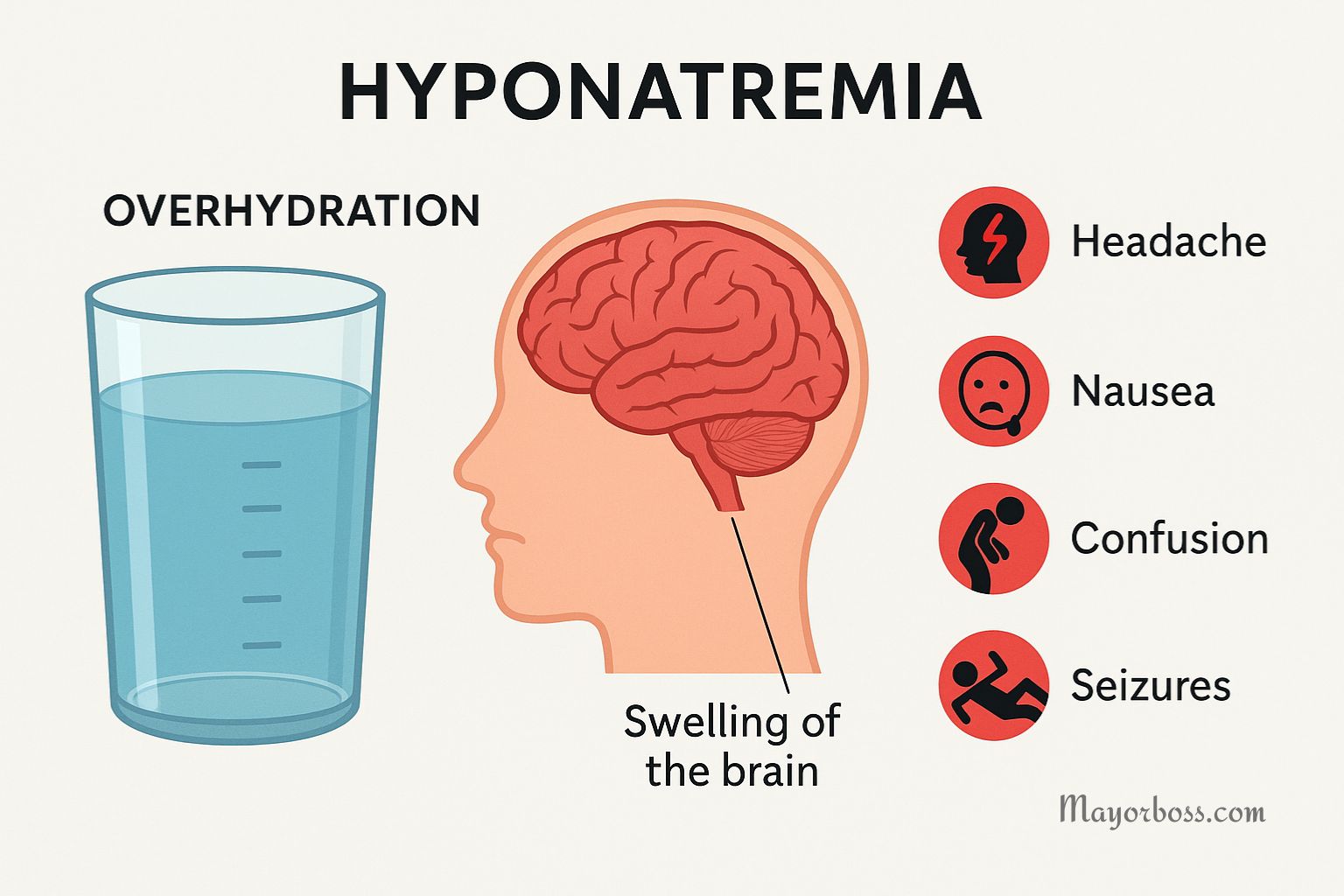
We are often told to “drink plenty of water,” but how much water is too much? While staying hydrated is vital for health, overhydration — also called water intoxication — can be dangerous and, in extreme cases, life-threatening.
What Is Overhydration?
Overhydration occurs when water intake greatly exceeds what your kidneys can remove. The kidneys can typically excrete about 0.8–1 liter of water per hour. When you drink far more than this, your blood becomes diluted, causing low sodium levels — a condition known as hyponatremia. 1
Why Low Sodium Is Dangerous
Sodium is an essential electrolyte. It helps control fluid balance in and around cells, supports nerve signals, and allows muscles — including the heart — to work properly. If sodium drops too low, water enters cells, making them swell. Brain cells are especially vulnerable because the skull cannot expand, which can lead to severe neurological symptoms.2
Symptoms of Drinking Too Much Water
Overhydration symptoms can range from mild to severe. Watch for:
- Headache or pressure in the head
- Nausea or vomiting
- Fatigue or muscle weakness
- Confusion, trouble focusing, or disorientation
- Swelling in hands, feet, or face
- Irritability or unusual behavior
- Seizures in severe cases
If symptoms appear soon after excessive water intake, seek urgent medical attention.
How Much Water Should You Drink a Day?
Daily fluid needs vary depending on age, body size, activity, climate, and health. In general:
- Most healthy women need about 2–3 liters of total fluids a day
- Most healthy men need about 3–4 liters of total fluids a day
- Drinking more than 3–4 liters in a short period can overwhelm the kidneys
- In extreme cases, 6–7 liters in 24 hours without electrolyte replacement can trigger water intoxication
Athletes are at higher risk if they replace sweat with large amounts of plain water instead of drinks that contain sodium and other electrolytes.3
Who Is at Risk for Overhydration?
- Endurance athletes
- People with kidney problems
- Those taking certain medications, such as antidepressants or NSAIDs
- Individuals with hormonal disorders like SIADH
- Older adults with reduced kidney function
Preventing Water Intoxication
- Drink to thirst, not a fixed target, unless prescribed by a doctor
- Monitor urine color — pale yellow is healthy; completely clear urine may indicate overhydration
- Spread water intake throughout the day
- Use electrolyte-containing drinks during long exercise or hot weather
- Follow medical advice if you have conditions affecting fluid balance
When to Seek Medical Help
Get immediate medical help if you notice:
- Confusion after drinking large amounts of water
- Seizures
- Severe nausea and vomiting
- Headache with swelling in the face, hands, or feet
FAQs
1. Can you get overhydrated from fruits and vegetables?
Unlikely for healthy adults. Even water-rich foods rarely cause water intoxication on their own.
2. Is clear urine always a good sign?
Not always. Constantly clear urine may mean you are drinking more than your body needs.
3. Can overhydration cause weight gain?
Yes, excess water can temporarily increase body weight until the kidneys remove it.
4. How fast can overhydration happen?
It can develop within a few hours if you drink several liters of water without enough sodium.
5. Do tea and coffee count toward daily water intake?
Yes. They contribute to total fluid intake despite mild diuretic effects.

